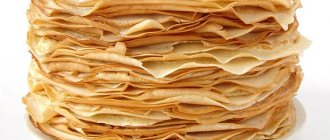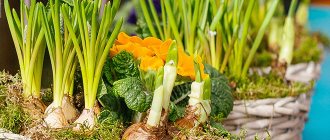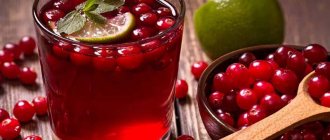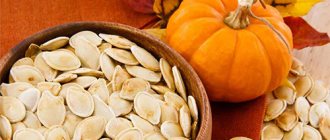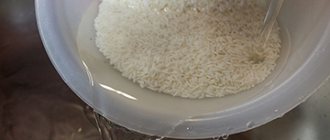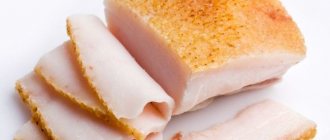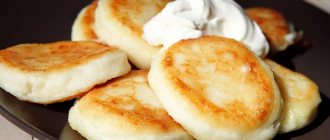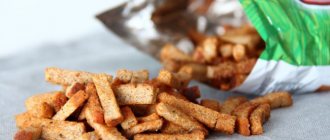In modern stores, a young mother can easily find almost any product she wants, including baked goods with poppy seed powder or filling.
However, there are a lot of rumors regarding the safety of such baked goods, in particular about the seeds themselves, and therefore today we will figure out whether poppy seeds can be used while breastfeeding. Such a significant prevalence of this product seems to indicate that it is completely harmless, but whether this is so and whether poppy seeds harm a child - we will find out in the course of our article.
Can a nursing mother eat poppy seeds and in what quantities?
Today, as in ancient times, poppy seeds are used in the pharmaceutical and food industries.
The variety of culinary delights, especially baked goods, attracts young mothers who often crave something tasty. But is it acceptable to eat poppy seeds while breastfeeding? All kinds of rolls, rolls and dryers, bagels and pies - it’s hard to resist, but won’t eating a bun with poppy seeds affect the health of the baby whom the mother is breastfeeding? Some parents believe that it is better to avoid poppy seeds, as they have a narcotic effect on the child's body. Let's consider whether this is true and how justified the use of seeds is.
Can a nursing mother of a newborn take poppy seed and what are its benefits?
Everyone knows that poppy as a plant has narcotic properties, which is why its cultivation is prohibited in many countries around the world. It is not surprising that young mothers are concerned about the fact that poppy seeds are often included in baked goods.
Looking ahead a little, let’s immediately decide whether these fears are justified or not. In fact, poppy seeds can indeed lead to many undesirable narcotic effects, but confectionery poppy is almost completely safe in this regard, and therefore its presence in baked goods should not confuse or frighten you.
But first things first, so let’s first talk about the beneficial properties of this product. Fortunately, there are a lot of them, so a bun with poppy seeds can become not only very tasty, but also a very healthy snack for a young mother.
- Poppy seeds contain an incredible amount of fiber . These plant fibers are essential for our digestive system to function properly. In particular, fiber helps the intestines work better and effectively absorb various beneficial substances. In addition, it will help mothers suffering from constipation to normalize their digestion.
- Maca contains vitamin C. This substance is known for its antioxidant properties, and therefore it helps cells recover and renew themselves faster. Antioxidants also help remove unwanted substances from the body that lead to cancer.
- The antioxidant properties of vitamin C also have a beneficial effect on the immune system. It becomes more resistant to all kinds of infections and diseases, and therefore poppy can help fight respiratory diseases during particularly severe outbreaks.
- Poppy seeds contain a trace element such as magnesium . It is involved in the production of the sleep hormone melatonin, and therefore poppy seeds help improve the quality and continuation of sleep. This effect affects both mother and baby, since some of the nutrients reach the baby through milk.
- Poppy is an excellent source of iron, copper and vitamin B6 . All these compounds are involved in the processes of hematopoiesis, and therefore we can say that poppy seeds improve lactation. In addition, blood circulation in the body helps oxygenate the brain, which means it functions as efficiently as possible and develops more actively.
- Poppy seeds also have anti-inflammatory properties . This feature makes them an excellent assistant in the fight against peptic ulcers, as well as in cases where a nursing mother has wounds in her mouth.
- The set of useful substances that poppy seeds are so rich in helps the baby’s brain develop at incredible speed. Copper and iron ensure the speed of reaction in cells and contribute to their recovery.
- Maca also contains zinc and calcium . These microelements are necessary for bones to actively grow and strengthen. Since the most intensive growth occurs in the first year of life, the baby’s need for these substances is especially great.
- Poppy seeds are rich in potassium . This mineral is involved in maintaining water-salt balance in the body, and therefore its normal level ensures optimal removal of fluid from the body. Since many mothers face the problem of edema after childbirth, eating foods rich in potassium becomes an effective and safe solution.
What are the benefits of poppy seeds?
Perhaps it was not without reason that in ancient times poppy was credited with magical powers, including the expulsion of evil spirits. This plant contains a lot of useful substances. Here are some of its properties:
- decoction - to relieve fatigue, to calm cough;
- infusion of seeds - for nervous disorders, for restful sleep;
- anthelmintic action;
- treatment of diarrhea (fixing effect).
In addition, the seeds have a high calorie content (556 kcal) and a relatively harmonious combination of essential substances necessary for the body:
- proteins - 17.5 g;
- fats - 47.5 g;
- carbohydrates - 14.5 g.
The plant contains vitamins E and PP, as well as minerals necessary for various body systems:
- cobalt - hematopoiesis, enzymatic processes, liver functions, nervous system function;
- copper - protein metabolism, enzyme systems;
- iron - oxygen metabolism, blood health;
- zinc - hormonal balance;
- sulfur - formation of protein structures;
- potassium - water-salt metabolism;
- phosphorus - enzyme systems, skeletal system;
- sodium - acid-base and water balance;
- magnesium - enzyme systems, protein synthesis;
- calcium - skeletal system.
It is worth noting that poppy contains a high content of protein and calcium in an easily digestible form (more than in cow's and goat's milk).
It also contains dietary fiber, starch, and saturated fatty acids. Preparations based on it are used in the treatment of diseases of the gastrointestinal tract, cardiovascular system (papaverine), bronchitis (codeine). Traditional medicine based on this plant helps with joint pain, hemorrhoids, and liver diseases.
Eating
Some mothers worry that poppy seeds may provoke reactions in the baby’s digestive system, especially if he has a “restless” tummy. Concerns about the use of poppy seeds while breastfeeding are not unfounded. If a child suffers from constipation, excessive use of poppy seeds can only worsen these symptoms. Stomach colic is also likely to occur.
Is it possible to poppy during breastfeeding? Usually it does not have any negative effect on the baby. The experience of nursing mothers shows that each begins to add seeds to the diet at different times. Some start during pregnancy, others try when the child is two months old, and some do not risk doing this before six months. But everyone agrees: if you don’t eat poppy seeds in too large quantities, there won’t be any problems.
- 6 g - 1 teaspoon (about the same amount in a small bun);
- 20 g - 1 tablespoon (a piece of cake can contain approximately 50 g of seeds).
When and how can you start eating
Considering the composition of poppy seeds, the product should be introduced into the diet of a nursing woman no earlier than the sixth month of breastfeeding. The baby's digestive system is enzymatically immature. Consumption of confectionery poppy seeds at an earlier date threatens the occurrence of allergic reactions and intestinal colic in the baby.
Introducing poppy into the mother's diet
The main rule for introducing a new product to a nursing mother’s menu is a step-by-step process. It is recommended to try a small amount of a product containing maca. For the first time, it is enough to eat a quarter of a bun with poppy seed filling. If within two days after taking the baby there are no negative reactions, then gradually the use of the product is brought to normal. The step-by-step introduction of edible poppy into the menu will ensure the safety of mother and child.
If you really want something, why not try it? After all, when a woman clearly sees a connection between the consumption of any products and the well-being of the child, then she herself will refuse such products. But if you and your child feel normal, there are no problems, so why limit yourself? Eat for your health!
Komarovsky E.O.
Official website of Dr. Komarovskiy: www.komarovskiy.net
Usage rate
Edible poppy is practically not consumed as an independent product. Most often, seeds are included in the menu of a nursing mother as an additive to baking dough or as a filling. It is recommended to include foods containing poppy seeds in your diet no more than 2 times a month. A nursing woman can consume up to 50 grams of poppy seeds at one time, provided there are no negative reactions in the baby. One teaspoon holds 5 grams of poppy seeds, and a tablespoon holds up to 25 grams of seeds. The content of poppy in products varies:
- A standard 80 gram bun contains a teaspoon of poppy seeds.
- A bun with poppy seed filling contains 20 grams of seeds.
- A medium-sized piece of pie or roll with poppy seed filling contains up to 50 grams of seeds.
- Milk of the poppy is a drink that has a calming effect. Prepared from poppy seeds, water and sweeteners (honey, dates, cane sugar). Milk from poppy seeds is prepared at home, so the poppy content depends on the recipe.
Milk of the poppy recipe for a nursing mother
To prepare poppy milk you will need:
- 3/4 cup edible poppy seeds;
- 1 glass of boiling water;
- 3 glasses of cold water;
- 1 tablespoon cane sugar.
The recipe is easy to follow:
- Rinse the poppy seeds with cold water, place in a sieve, and wait until the water drains.
- Place the washed poppy seeds in a saucepan and pour a glass of boiling water, cover with a lid, wait until the seeds have cooled.
- Place the cooled poppy seeds in a sieve and drain the water.
- Grind the prepared grains in a blender for 3 minutes. When grinding, a white liquid will appear.
- Then add 3 cups of cold boiled water and sugar to the blender, beat everything.
- The milk of poppy is ready.
Milk of poppy seeds can be stored in the refrigerator for up to 5 days.
Possible side effects during breastfeeding
As for the doubts whether a nursing mother can take poppy seeds due to its “intoxicating” properties, this plant today is really becoming the basis for sleeping pills, painkillers, and narcotic substances. Such drugs are addictive, and that is why the state controls the production of the plant: 50% of it consists of oils rich in fatty acids, resins, waxes, sugars, and 20% of codeine and morphine. But this only applies to plants that are bred for the pharmaceutical industry.
The only thing you should pay attention to is that the calming effect remains. Mothers say: it’s enough to eat baked goods with poppy seeds, and after feeding the baby falls asleep almost instantly, sleeps long and peacefully (and the depression of the central nervous system that supposedly takes place has nothing to do with it). True, it all depends on individual characteristics. Many babies, even after their mother has chosen such a treat, remain cheerful and cheerful.
Maria Gudanova, an expert at the Association of Consultants on Natural Feeding, comments on the opinion regarding “narcotic euthanasia” as follows: the judgment is based on the fact that even in pre-revolutionary times, poppy seeds were added to baby pacifiers so that babies would sleep more soundly. But even if we assume that food (confectionery) poppy seeds retain a similar property, the “artificial” prolongation of the deep sleep phase is in any case not beneficial for the child: the shallow sleep phase is very important. Therefore, moderate or minimal use of poppy is recommended when feeding a newborn.
It should be noted that it has not yet been sufficiently studied exactly how eating seeds affects the mental development and nervous system of a child. This is another reason why it is recommended to significantly reduce the amount of your favorite baked goods, especially homemade and especially in the first month of the baby’s life, when, in principle, you should not allow yourself any excesses. But no one has yet noticed a serious reaction of a baby to a couple of poppy seeds eaten by the mother or a small piece of pie.
So, in small quantities, poppy does not cause harm. Experts also do not support the idea of overeating any product, even the most healthy one. Therefore, when wondering whether a nursing mother can take poppy seeds, she should adhere to the principle of moderation and not neglect the advice of a doctor.
Controversial product - poppy during breastfeeding
During lactation, a young mother's diet is quite limited, and women often want something tasty. Typically, nursing women prefer fresh baked goods and confectionery, to which various flavorings are added, including poppy seeds. Pediatricians have not yet developed a common point of view on whether poppy seeds can be used while breastfeeding.
There are a variety of rumors among breastfeeding women about the benefits and harms of this product. Many ladies are even confident in the narcotic effect of the seeds of the plant in question on the baby. What are the pros and cons of baking containing poppy seeds during lactation?
Read in this article
Side effects of eating poppy while breastfeeding
As you can see, poppy seeds have a truly impressive list of beneficial properties that many nursing mothers are not even aware of. Unfortunately, this product also has several harmful qualities, thanks to which it has earned such a bad reputation.
It should immediately be noted that to a greater extent this applies to seeds that have not been subjected to sufficient processing or not processed at all.
- The narcotic effect that poppy has is associated with the presence of opiates in it. These substances are formed and contained inside the stem, but some of them also reach the seeds. When such poppy is consumed, opiates enter the mother's blood first and then the baby. All this causes a number of negative consequences, including problems with the nervous system.
- Even shelled seeds can cause headaches and stomach pain. Most often this is due to the individual characteristics of the nursing mother’s body.
- Since poppy is a plant, it is highly likely to cause an allergic reaction in an infant. It manifests itself in the form of watery eyes, difficulty breathing, coughing and the appearance of redness or rashes on the skin.
- Also, poppy seeds eaten by the mother can cause indigestion in the baby. Some babies suffer from colic, gas and bloating. The consistency of the stool changes, or the child suffers from constipation.
Chemical composition and positive properties of poppy seeds
Poppy has long been used in folk medicine as a remedy for various diseases. Experts explain the positive qualities of this product due to its balanced composition and large number of useful substances:
- First of all, we should highlight the presence of vitamins E in poppy seeds , which contribute to the normalization of the immune system of a woman and baby. Do not forget about the increased content of vitamin PP. This substance is necessary for the baby for the speedy development of the central nervous system and the blood vessel system.
- The special value of poppy is its truly unique set of microelements, many of which are very beneficial for a child’s health. Copper and sulfur promote proper protein metabolism, zinc and magnesium normalize the balance of essential hormones and improve the functioning of enzymes, cobalt and iron stimulate the activity of the hematopoietic organs, improve the functioning of the liver, and help saturate the body tissues of the mother and the little person with oxygen.
- The seeds of the plant contain twice as much protein and calcium as regular milk. At the same time, experts classify this product as high-calorie: proteins, fats and carbohydrates are in optimal proportions, the energy potential of 100 grams reaches 600 kcal. You can usually use poppy seeds while breastfeeding and even need it for underweight girls.
- Due to the fact that the grains of the plant include a large amount of starch and saturated fatty acids, poppy is successfully used to treat gastrointestinal diseases. The presence of coarse dietary fiber in this product helps a woman solve stool problems that often bother a nursing mother.
Why are confectionery products containing poppy harmful?
Despite all the positive qualities of the plant in question, doctors do not advise women in their care to include fresh baked goods with poppy seeds in their diet until the baby is 6 months old. They justify their recommendations with the following factors:
- Poppy seeds contain active substances - morphine and codeine. Of course, in plants that are grown specifically for the food industry, the dosage of these drugs is minimal. But even such doses can affect the baby. Morphine often causes disorders of the central nervous system, and codeine has a negative effect on the child’s digestive processes.
- Experts note that the ban on consuming poppy seeds during breastfeeding is also due to the fact that this product has high allergic activity, which is very dangerous for a newborn.
- Crackers with poppy seeds during breastfeeding can cause colic in the baby's stomach, bloating and increased gas formation. For a young mother, such a diet threatens to interfere with the frequency of bowel movements, and since women already suffer from constipation during lactation, such food can only aggravate the situation.
- In the first few months after the birth of a baby, doctors do not allow a nursing woman to eat fresh bread, pastries and confectionery. To avoid digestive problems for a woman and her child, experts recommend that patients include in their diet only pita bread without salt and spices, as well as wholemeal bread with bran.
Watch the video about nutrition while breastfeeding:
Recipes with poppy seeds
Including poppy seeds in various types of baked goods is a common culinary practice. At the same time, you can prepare delicious dishes at home that are practically not harmful to babies.
Pancakes with poppy seeds
Ingredients:
- 2 eggs;
- a couple of tablespoons of sugar;
- salt;
- soda;
- a teaspoon of vinegar;
- a glass of wheat flour;
- a glass of milk;
- a tablespoon of poppy seeds;
- 50 milliliters of vegetable oil.
Cooking method:
Beat two eggs into a bowl. Add salt and sugar to them, mixing thoroughly.
Warm milk is poured into the mixture. Stir again.
Flour is gradually poured into the milk mixture. Add half a teaspoon of soda, slaked with 9% vinegar.
Add poppy seeds.
Heat up the frying pan. Pancakes are fried in a small amount of vegetable oil on both sides until golden brown. The pancakes are ready. Bon appetit!
You can find out if you can eat bananas during lactation in our article. How to properly plan a diet while breastfeeding, read here.
All about fruits and berries in the diet of a nursing mother, read the link
Curd envelopes with poppy seeds and apples
Ingredients:
- 150 grams of low-fat cottage cheese;
- one chicken egg;
- egg yolk;
- 250 grams of wheat flour;
- a pack of baking powder;
- a pack of vanilla sugar;
- 125 grams of sugar;
- 3 apples;
- a teaspoon of cinnamon;
- a tablespoon of milk;
- a tablespoon of poppy seeds;
- 6 tablespoons of vegetable poppy seeds.
Cooking method:
Use regular low-fat and unsweetened cottage cheese. It is rubbed through a sieve. If necessary, add a little sour cream. The weight of the finished curd mass should be 150 grams.
The curd mass is mixed with egg, vegetable oil, vanillin and sugar, salt. You don't have to use a mixer for this. Simply mix the ingredients thoroughly with a spatula or spoon.
Mix flour with baking powder and sift. Then it is added to the dough. Mix the ingredients with a spatula, then form the dough.
The prepared dough is covered with a towel and left for 20 - 30 minutes to infuse.
The apples are washed, peeled and cut into thin slices.
The dough is divided into two equal parts. One half is rolled out into a thin circle and cut into eight segments. Small cuts are made on each segment. Place sliced apples on the wide part, sprinkling them with sugar and cinnamon. The narrow end is used to wrap the dough, hiding the tip under the bun for security. The second half of the dough is processed in the same way.
The buns are placed on a baking sheet, which is previously covered with parchment paper. The dough is greased with a mixture of egg yolk and a tablespoon of milk, sprinkled with poppy seeds.
The buns are baked in an oven heated to 180 degrees for about half an hour. Baking with poppy seeds and apples, which can delight you with the presence of useful substances, is ready. Bon appetit!
How to properly introduce dishes into the diet of a nursing woman
Given the chemical composition of poppy seeds, any food products containing them should be treated with caution. The rules for eating such dishes and baking by a nursing mother are the same as for other new products.
It is allowed to eat buns or pies with poppy seeds only after the baby is 6 months old. However, there are recommendations that if a woman wants to use poppy seeds while breastfeeding, then this can be done already at 3-4 months of lactation.
Doctors explain such discrepancies in their advice by the fact that fresh baked goods contain up to 20 grams of grains, while the amount of poppy seeds in breadcrumbs and dried foods is much less. In addition, some pediatricians believe that if poppy seeds have undergone heat treatment, then the percentage of morphine and codeine in them has decreased significantly, and therefore the effect on the baby will be less.
Women should remember that even in minimal quantities, poppy seeds can cause sleep disturbances in a child. The fact is that, thanks to its chemical formula, this plant prolongs the period of the deep sleep phase, significantly reducing the baby’s surface sleep time.
Such changes can provoke disorders in the baby’s central nervous system, which can result in eating disorders, weight loss and disorders of the digestive tract. In addition, many pediatricians note the lack of serious research on the direct effect of poppy seeds on the child’s nervous system and the possibility of delays in his mental development.
You should constantly monitor the baby’s condition, the speed of his nervous reactions and the absence of allergic manifestations to the new product. After taking a break of 5-7 days after the first dose, in the absence of pathological reactions, the introduction of various dishes with poppy seeds into a woman’s diet can be repeated. Throughout this period, the nursing mother must constantly maintain contact with the attending physician.
Allergy to poppy in infants
When thinking about introducing poppy into the diet, it is extremely important to take care not only of choosing the right product, but also of its safety for the baby and his mother.
Single poppy seeds are allowed in baked goods. This amount of product cannot be harmful to either the woman or the baby.
Moderate consumption of poppy seeds in baked goods is acceptable even during lactation. The main task is to make sure that the baby does not have allergies.
What symptoms should cause suspicion in a baby? How can you guess that a baby is allergic to poppy?
- skin diseases. In this case, redness, severe itching, allergic rash or urticaria, increased sweating and even Quincke's edema are noted;
- respiratory diseases. Most often, babies suffer from a severe runny nose;
- gastrointestinal diseases. Constipation and diarrhea, frequent regurgitation, vomiting, and flatulence should cause concern.
It is important to note that the most serious and life-threatening symptom is angioedema. In this case, there is swelling of some parts of the body, an attack of suffocation and a lack of oxygen. Only timely medical care can save a baby’s life. You should be prepared for the fact that poppy seeds can lead to the development of severe allergies.
If there are any disturbances in the baby’s well-being after the first administration of poppy, you should contact an experienced pediatrician.
When else is poppy and its derivatives used?
It should be noted that poppy seeds are used not only for preparing delicious dishes, this plant has long been and deservedly used in folk medicine. The circle is quite wide:
- A good effect can be obtained by prescribing decoctions and infusions of poppy seeds for respiratory diseases. The product is widely used in the treatment of sore throat and chronic bronchitis. Poppy tincture is included in the complex therapy of pneumonia as an expectorant.
- Due to their composition, grains are useful for treating disorders of the central nervous system. This plant improves sleep, relieves nervous tension and excessive aggressiveness, that is, poppy works well as a tranquilizer. For such purposes, it is most often recommended to drink a decoction from the leaves of the plant.
- A decoction of grains perfectly helps with severe pain and cramping in the intestines. 20 grams of grains or poppy heads are poured into 0.5 liters of boiling water, simmered over low heat for 30 minutes, cooled and taken 50 grams several times a day.
However, such recipes are contraindicated for women during lactation. Young mothers can only console themselves with the fact that milk of the poppy, which can be obtained from the grains of this plant, is an excellent product for caring for the skin of the face and décolleté.
We recommend reading the article about allergenic foods during breastfeeding. From it you will learn about the causes of an allergic reaction during lactation, allergenic foods and dietary recommendations.
Poppy seeds used as a culinary seasoning or as a traditional medicine should cause increased caution in a nursing woman. This plant can help a young mother in certain situations, but it can also negatively affect her and the baby’s health. Therefore, like any other product, poppy can be used during lactation only under the supervision of a doctor.
However, now we have to figure out everything, including whether vanilla crackers can be made with poppy seeds or raisins. . They can be eaten after 3 months of breastfeeding. To diversify the nutrition of a young mother, you can.
Nutrition during lactation: how to choose a diet. With the onset of lactation, quite serious things happen in the female body. Why does this most constant, insatiable feeling of hunger appear during breastfeeding?
The concept of allergies and general principles of nutrition during lactation. Allergy, or immediate reaction. Quite a strong allergen during breastfeeding are citrus fruits, especially oranges and bananas.
Benefits and harms
Our ancestors studied the benefits of poppy seeds and actively used poppy seeds in the treatment of various diseases:
- a decoction was used to muffle coughs and relieve fatigue;
- for sleep disorders they made an infusion;
- poppy seed, used internally, had an anthelmintic effect;
- Poppy seeds also had a fixing effect on diarrhea.
Usually poppy during breastfeeding does not have a negative effect on the child. Reasonably, it can be consumed by the expectant mother during pregnancy and by a nursing woman at different periods of feeding the child.
Nutritional value of poppy
In some cases, poppy can be harmful. This can be explained by the presence of codeine and morphine in its composition. Getting into the baby's fragile body along with mother's milk, these strong substances can slow down the development and growth of the baby.
Also, codeine and morphine have a depressant effect on the baby’s central nervous system. Therefore, the use of poppy seeds should be started with caution and carefully monitor the baby’s reaction.
Poppy milk
Baking with poppy seeds – is it worth eating?
Experts say that products with poppy seeds during lactation can be eaten in small quantities - no more than 2 pieces per day. After which, some mothers breastfed the child and noticed that he quickly fell asleep. And there is nothing to worry about here, if the baby cried and was capricious a lot before, then the calming effect will have a positive effect. There are cases when the effect of poppy is not manifested in any way, which is due to the individual characteristics of the body.
In the first few months of lactation, experts advise avoiding any baking altogether. It is allowed to eat bran bread or pita bread, biscuits and oatmeal cookies (necessarily unleavened) in small portions. You should not add poppy seeds to baked goods earlier than 3-4 months after giving birth. After all, the first months of motherhood are the most difficult. The baby’s body learns to quickly adapt to everything new and learns new substances through breast milk. If your baby begins to be capricious more often, you notice rapid breathing or skin rashes, then you should not eat poppy seeds at the moment. After a month you can try again.
The optimal choice is poppy seed drying. After eating such dishes, it is necessary to carefully monitor the baby’s reaction to a new product in the diet.
The smell of a freshly baked bun attracts everyone. But a nursing mother needs to remember that she should not eat hot or uncooked products.
In addition to harming the figure, they affect the infant: they cause bloating and colic.
Poppy seeds are a universal additive that goes well with almost any baked product. Women during lactation are very fond of various dried foods, crackers and breads. This is quite logical and correct. After all, for example, bread is healthy and low in calories. They contain a high concentration of fiber and minerals, vitamin B, which do not decrease after processing, since they are prepared from low-grade flour. The assortment of bread is quite large, and even the most picky mother will be able to choose the type that suits her preferences. Flavoring additives in products are not recommended. You can eat no more than two loaves of bread (or other products) per day.
So, it is permissible to consume poppy while breastfeeding. But it is important to monitor the baby’s body’s reaction to this product.
Contraindications
Despite all the benefits of poppy seeds, a mother should not eat it while breastfeeding her child if the latter has symptoms of digestive disorders or is prone to allergies. In this case, baked goods and buns with poppy seeds eaten by the mother can cause a deterioration in the baby’s health.
Poppy seeds
Poppy seeds are able to prolong the deep sleep phase, so when feeding a newborn, a mother can eat a minimal amount of the product. One or two dryings or a small piece of poppy seed cake, consumed occasionally, will not cause harm in this case.
Also, a mother suffering from constipation, which is not uncommon after childbirth, should not eat poppy seeds. Such baking only aggravates the woman’s situation.
The health condition of a nursing mother who has problems with the gallbladder is also deteriorating. In this case, the poppy product will increase the secretion of bile, which will inevitably make the woman suffer.
Poppy on the nursing menu
Poppy comes in two varieties: for the pharmaceutical industry (the basis for the production of sleeping pills, painkillers, narcotic drugs), and for cooking (a plant variety without intoxicating properties).
Therefore, nursing mothers can consume such confectionery products: there will be no intoxicating effect. However, the calming effect will remain: the baby falls asleep easily and sleeps long and peacefully. Again, here we must take into account the individual characteristics of infants: some remain vigorous and active.
Roll with poppy seeds
Baking with poppy seeds can be gradually added to the mother’s diet about three months after birth. Of the variety of poppy seed desserts, it is better to choose dry ones. They themselves are beneficial for digestion, and poppy seeds will add nutrients and beneficial substances necessary for the body of both mother and child. But if the baby is drowsy, lethargic, and lethargic, the mother should refuse poppy seeds.
In any case, it is better for a nursing woman to first consult a doctor about whether she can eat poppy crackers, dry breads, and buns.
How to introduce poppy into the diet during breastfeeding
The diet during lactation should not be too strict. However, it is best to actively include foods in the diet after 2–3 months of the baby’s life. You can try baking with poppy seeds for the first time 3 months after giving birth. Initially, you need to limit yourself to small portions, remembering that the child must adapt to the products included in the diet.
As the baby grows, a gradual expansion of the diet is allowed. Cookies, pies and buns contain a small amount of poppy seeds, so the risk to the baby is virtually eliminated. At the same time, rich baked goods should be introduced only after biscuits and sweet crackers, because even sugar and eggs are considered potentially dangerous.
Caution must be exercised when introducing a new product. Moreover, you need to remember that other ingredients also carry a certain burden and affect the composition of breast milk. Ideally, you need to eat a miniature piece in the morning and carefully monitor the baby’s condition. Only if the baby responded well is a gradual increase in the portion of the treat allowed. Subsequently, baked goods can be eaten 1-2 times a week, since monitoring the norm still remains important.
Poppy during breastfeeding
Let's say right away: yes, indeed, opium poppy seeds are used in cooking. It has also found its use in pharmaceuticals; morphine and codeine are prepared from the milky juice, which are necessary for the production of sleeping pills, painkillers and narcotics. In the old days, small children were lulled to sleep with the help of milk of the poppy, a liquid found in unripe poppy pods and, in fact, a solution of opium. Unfortunately, many of these children were lulled to sleep forever. In the 19th century, opium tincture with alcohol (“Laudanum”) was popular, which was also prescribed to children and which was just as destructive. She took away the baby's appetite, and he died of hunger.
Nowadays, only ripened poppy seeds, which have much lower levels of alkaloids, are used in the culinary industry. Compare - in unripe boxes the opium content reaches 20%, the morphine content in it is the same 20%. In mature bolls, the maximum morphine content does not exceed 0.5%. Therefore, the product is considered safe for humans. What about breastfeeding people?
Pediatricians say that baking with poppy seeds is allowed during lactation. You can try buns with poppy seed sprinkles starting from the baby’s three months, but it’s better to wait until six months. The fact is that the effect of poppy in breast milk on the child’s body has not yet been fully studied.
Poppy is introduced like any other new product. In the morning, before feeding, eat a small amount (one dry bread, 1-2 bites of a bun) and monitor the child’s well-being throughout the day. You should be alert to sudden drowsiness, crying for unexplained reasons, sleep disturbances, bloating, rashes and other negative changes in the baby’s condition. If at least one sign appears, put the product aside for 1–2 months. If everything is good, after a week you can eat 2 times more. The maximum allowable amount of poppy seeds for a nursing mother per day is 2–3 grams, which is what is contained in a regular bun with sprinkles. It is better to avoid rolls and pies with thick poppy seed filling.
Note! Quite often, a child’s negative reaction is not associated with poppy seeds, but with baking in general. For example, rich yeast dough provokes gas formation, abdominal pain, and stool disorders. Therefore, first check how your child reacts to simple buns and buns.
Children under 1 year of age are allergic to poppy seeds. It occurs on plant proteins, albumins and globulins. The signs are standard: hives, redness of the eye mucosa, cough, itching and swelling of the oral mucosa. An allergic reaction is rare, but it is something to be aware of.
Composition of poppy
Poppy is rich in vitamins and nutrients. This is the record holder for calcium, 100 g. poppy seeds contain 1667 mg. (for comparison, cow's milk contains only 150 mg per 100 g). In this case, calcium is contained in an easily digestible (chylate) form. The calorie content of poppy seeds is 525 kcal per 100 g.
In addition to calcium, it contains phosphorus (903 mg/100 g), potassium (578 mg/100 g), magnesium (442 mg/100 g), sodium (19 mg/100 g), iron (10 mg /100 gr.). Vitamins E, PP (niacin), B6, as well as essential amino acids (valine, isoleucine), polyunsaturated omega-6 fatty acids (linoleic), etc.
Useful properties of poppy
Poppy is called the source of youth and longevity. A bun with poppy seeds instantly lifts your mood and energizes you. Preparations based on poppy alkaloids relieve coughing attacks (codeine), have a sedative, analgesic and hypnotic effect (morphine), have an antispasmodic effect (papaverine), and have an anthelmintic effect.
Can a nursing mother eat poppy seeds?
Buns with poppy seeds are safe for both mother and baby
If we are not talking about tinctures and other preparations made from poppy seeds, but exclusively about buns and donuts, then you can eat poppy while breastfeeding. If by the time your child is 4–6 months old you have practically returned to a normal diet, and there have never been any cases of allergies, feel free to try according to the above scheme.
Bun to bun is different. Pies and rolls with a thick layer of poppy seeds mixed with honey or sugar are of no use to you. Choose, or better yet bake yourself, simple buns made from lean dough with poppy seed sprinkles. You can eat them 1-2 times a week.
Buy a special poppy seed for baking, it is considered the most suitable for mother and child. Seeds should be in airtight packaging, preferably opaque. When opened, the grains are not glued to each other, are completely dry, do not have an unpleasant odor or foreign impurities (garbage). Under no circumstances buy poppy seeds in bulk, from your hands!
In what form is it safe for a nursing mother to eat poppy seeds?
Never experiment with traditional medicine recipes on your own! Do not consume poppy milk, alcohol tinctures, extracts and decoctions without consulting your doctor. You can have cookies and crackers, buns and casseroles, porridge with poppy seeds, and puddings.
Attention! If you cook at home, do not use poppy seed mixture! Only pure poppy seeds without additives or preservatives!
Is it possible to eat dumplings and pancakes with poppy seeds? Yes, if the poppy seed does not act as the main filling, but as a flavoring additive. Focus on the calculation for an adult - the maximum dose of morphine that is safe for health is 6.3 mcg per 1 kg of weight. Those. for a girl weighing 60 kg, 378 mcg of morphine per day is allowed. This is quite a lot, with a large pie containing 100-150 mcg of morphine. Therefore, one or two buns or a plate of dumplings with sprinkles once a week will definitely not harm you and your baby.
Buns with poppy seeds
Making the right buns with poppy seeds for a nursing mother! The diet for breastfeeding in the first months allows bran bread, biscuits and oatmeal cookies. Then it can be expanded, but it is still recommended to limit the baking. If you don’t have problems with constipation, the easiest way is to eat bagels with poppy seeds. If both you and your child suffer from constipation, try baking delicious and healthy buns according to our recipe.
Rye buns with poppy seeds
You will need: 200 gr. sour cream (15% fat), 2.5 cups rye flour, 1 tbsp. vegetable oil, 1 tsp. soda, 0.5 tsp. citric acid, 0.5 tsp. salt. Mix flour with salt and citric acid, add butter, sour cream and soda, knead the dough until elastic and elastic. Let it rest for half an hour, then form the buns, sprinkle them with poppy seeds (no more than 1 tsp per bun) and bake at 180 degrees for 20 minutes.
Bran buns with poppy seeds
You will need: 2.5 cups of wheat flour, 1 cup of kefir, 100 gr. vegetable oil, 2 tbsp. bran (wheat), a pinch of salt, 1 tbsp. sugar, 1 tsp. soda Mix dry ingredients separately and liquid ingredients separately. Combine both mixtures. The dough turns out soft and sticks to your hands. Leave it to “rest” for half an hour, then form buns, sprinkle with poppy seeds (no more than 1 tsp per bun) and bake in the oven at 180 degrees for 30 minutes.
How to choose a poppy
Poppy seeds can be purchased at any grocery store or market.
When purchasing a poppy, it is recommended to pay close attention to the following factors:
- use of opaque packaging. Light negatively affects the initial characteristics of the product;
- packaging tightness. Upon opening there should be no traces of moisture;
- crumbly grains without any damage. Only in this case can you be sure that the correct storage conditions for the product are observed;
- Amaranth is a false type of poppy. For this reason, its use is not recommended;
- fresh seeds have a sweetish aroma and a light taste with hints of nuts.
To successfully preserve the quality of poppy seeds, it is recommended to adhere to the following rules for storing the product:
- fats can go rancid, resulting in a significant deterioration in flavor. In this regard, it is recommended to store poppy seeds in a dark place using opaque, airtight containers;
- The product should be stored in a dry and dark room, remembering the need for good ventilation and normal air humidity;
- When storing for more than two months, it is recommended to use a refrigerator; in other cases, a freezer.
Only if you successfully store poppy seeds can you count on maintaining its impeccable quality.
Does eating poppy affect lactation?
At first glance, it seems that poppy has nothing to do with milk production. But more and more mothers are recommending poppy seed buns for lactation problems. They assure that after 30 minutes the milk begins to arrive. What is the reason for the effect?
Poppy is known for its calming effects. A nursing mother who feels like she doesn’t have enough milk is under terrible stress. Having relaxed, she stops concentrating on the internal processes of the body, and everything gets better by itself.
For problems with lactation, nicotinic acid tablets are often prescribed. This is vitamin PP (niacin), which improves blood circulation in the mammary glands, promotes the delivery of vitamins and nutrients involved in the process of milk production. When taking the drug in tablets, side effects are observed (rapid heartbeat, redness of the skin, dizziness, etc.). Maca contains vitamin PP in quite large quantities - 4 mg per 100 g. product, so it has a beneficial effect on lactation.
In ancient times (in ancient Egypt), poppy was also used to improve lactation, but in a rather original way. The plant was recommended to rub the breasts of a nursing mother. Most likely, the desired tide was achieved through massage and relaxation, but the fact remains that our distant ancestors already suspected the benefits of poppy during lactation.
If you have an unbearable craving for a bun or donut with poppy seeds, and your child is already six months old, you can easily afford your favorite pastry. If you don’t have a special desire, then you shouldn’t experiment. If you have the slightest doubt, contact your pediatrician, he will help you make the right decision.
